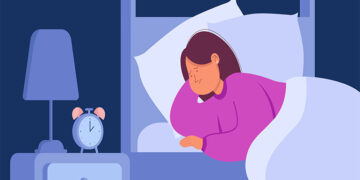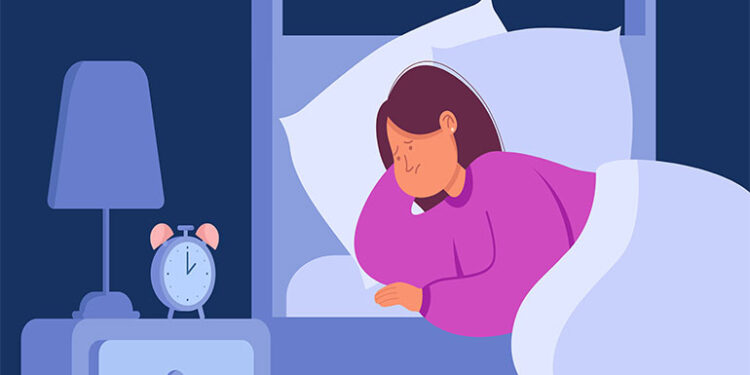Compiled by Ebi Kesiena
Sleep is one of the most important activities for good health. During sleep, your body cycles through four different stages. These all impact your brain waves, muscle relaxation, recovery, and breathing.
Regularly sleeping less than seven hours at night can put your health and safety at risk, which is why it’s essential that you prioritize and protect your sleep on a daily basis.
Though sleep needs vary from person to person, most adults require between 7 and 9 hours of sleep per night.
This article tells you 7 reasons why you need to get more sleep.
1. Sleep may help you maintain or lose weight
Numerous studies have associated short sleep, defined as sleeping fewer than 7 hours per night with a greater risk of weight gain and a higher body mass index (BMI).
In fact, a 2020 analysis found that adults who slept fewer than 7 hours per night had a whopping 41% increased risk of developing obesity. Meanwhile, sleeping longer didn’t increase the risk.
The effect of sleep on weight gain is believed to be affected by numerous factors, including hormones and motivation to exercise.
For instance, sleep deprivation increases levels of ghrelin and decreases levels of leptin. Ghrelin is a hormone that makes us feel hungry while leptin makes us feel full. This may cause us to feel hungrier and overeat. This is supported by various studies that have shown that sleep-deprived individuals have a bigger appetite and tend to eat more calories.
To make matters worse, feeling tired after a night of too little sleep may leave you feeling unmotivated to hit the gym, go for a walk, or do whichever other physical activity you enjoy.
So, prioritizing sleep may support healthy body weight.
2. Sleep can improve concentration and productivity
Sleep is important for various aspects of brain function.
Cognition, concentration, productivity, and performance are all negatively affected by sleep deprivation.
A specific study on overworked physicians provides a good example. It found that doctors with moderate, high, and very high sleep-related impairment were 54%, 96%, and 97% more likely to report clinically significant medical errors,
On a similar note, getting enough sleep can improve academic performance in children, adolescents, and young adults.
Finally, good sleep has been shown to improve problem-solving skills and enhance memory performance in both children and adults.
3. Can maximize athletic performance
Sleep has been shown to enhance athletic performance.
Numerous studies have shown that adequate sleep can enhance fine motor skills, reaction time, muscular power, muscular endurance, and problem-solving skills.
4. May strengthen your heart
Low sleep quality and duration may increase your risk of developing heart disease.
One analysis of 19 studies found that sleeping fewer than 7 hours per day resulted in a 13% increased risk of death from heart disease.
Another analysis found that compared with 7 hours of sleep, each 1-hour decrease in sleep was associated with a 6% increased risk of all-cause mortality and heart disease.
Interestingly, excessive sleep in adults more than 9 hours was also shown to increase the risk of heart disease and high blood pressure.
5. Affects sugar metabolism and type 2 diabetes risk
Short sleep is associated with a greater risk of developing type 2 diabetes and insulin resistance — which is when your body cannot use the hormone insulin properly.
In fact, an analysis of 36 studies in over 1 million participants found that very short sleep of fewer than 5 hours and short sleep of fewer than 6 hours increased the risk of developing type 2 diabetes by 48% and 18%, respectively.
It’s thought that sleep deprivation can cause physiological changes like decreased insulin sensitivity, increased inflammation, and hunger hormone changes, as well as behavioral changes like poor decision making and greater food intake — all of which increase diabetes risk.
Plus, sleep deprivation is associated with a higher risk of developing obesity, heart disease, and metabolic syndrome. These factors also increase your risk of diabetes.
6. Poor sleep is linked to depression
Mental health concerns, such as depression, are strongly linked to poor sleep quality and sleeping disorders.
One study in 2,672 participants found that those with anxiety and depression were more likely to report poorer sleep scores than those without anxiety and depression.
In other studies, people with sleeping disorders like insomnia or obstructive sleep apnea also report higher rates of depression than those without.
If you have trouble with sleep and notice your mental health has worsened, it’s important to speak with your healthcare professional.
7. Affects emotions and social interactions
Sleep loss reduces your ability to regulate emotions and interact socially.
When we’re tired, we have a harder time controlling emotional outbursts and our behaviors in front of others. Tiredness may also affect our ability to respond to humor and show empathy.
Plus, those who are chronically sleep-deprived are more likely to withdrawal from social events and experience loneliness.
Prioritizing sleep may be a key way to improve your relationships with others and help you become more social.
If you deal with loneliness or emotional outbursts, don’t be afraid to reach out to a friend, family member, or healthcare professional to get support.
Along with nutrition and exercise, taking care of your sleep is one of the pillars of health.
Just like you prioritize your diet and physical activity, it’s time to give sleep the attention it deserves.



































